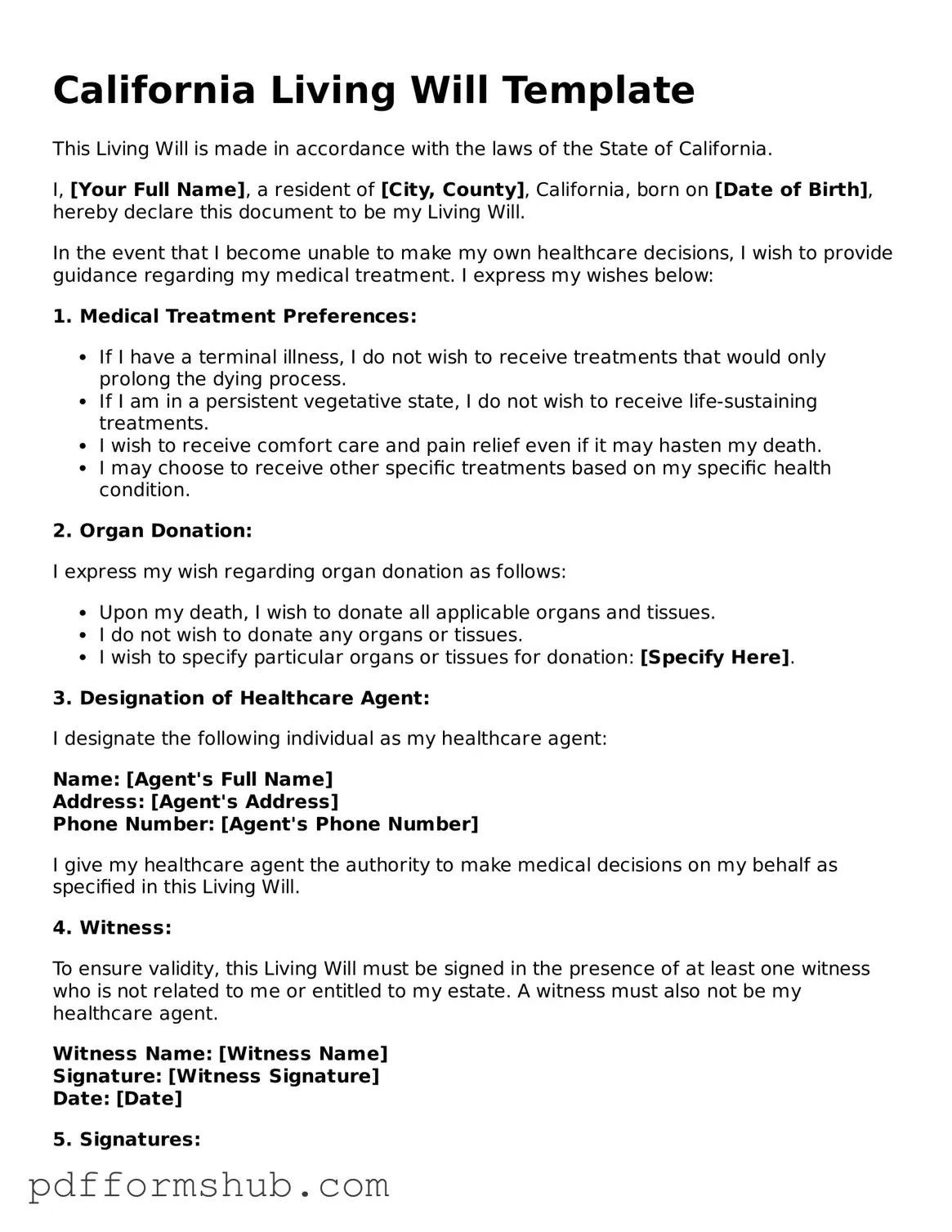Attorney-Verified Living Will Form for California State
A California Living Will form is a legal document that allows individuals to outline their preferences for medical treatment in the event they become unable to communicate their wishes. This form helps ensure that healthcare providers and loved ones understand a person's desires regarding life-sustaining measures. To take control of your healthcare decisions, consider filling out the form by clicking the button below.
Customize Form

Attorney-Verified Living Will Form for California State
Customize Form

Customize Form
or
Free PDF Form
Short deadline? Complete this form now
Complete Living Will online without printing hassles.